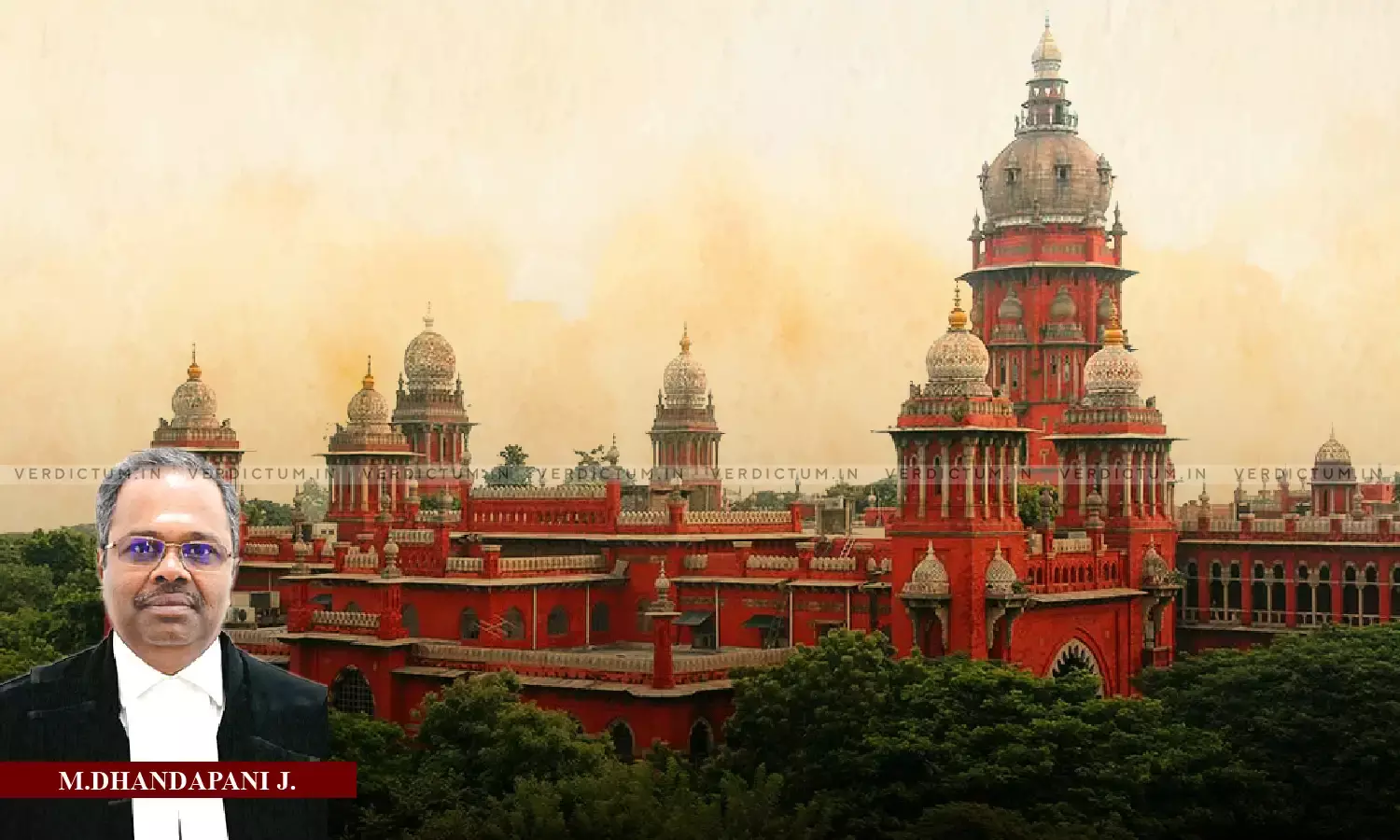Schools Not Receiving Grants-In-Aid But Providing Free Education To Children Admitted Under 25% Quota Are Entitled To Reimbursement By State: Madras HC

While acknowledging that the Petitioner along with other children who fall within the 25% quota of the Right of Children to Free and Compulsory Education Act, 2009 are entitled to reimbursement of other materials required for education and not the only the tuition fees, the Madras High Court observed that it is for the State Commission for Protection of Child Rights (first Respondent) to reimburse the entire amount that is due and payable for the education of a child who has been admitted under the 25% quota, so far as it is within the per-child expenditure incurred by the State so that the child gets the free elementary education without any bottlenecks.
The Single Judge Bench of Justice M. Dhandapani while noting that the State Commission cannot escape its duty by putting a burden on the Principal of the school (fourth Respondent), observed that “State cannot abdicate its responsibility by taking shelter under Section 12, by transferring the burden on the 4th respondent, which is an institution, which does not receive any grants-in-aid from the State so long as the amount charged by the 4th respondent is within the per-child expenditure incurred by the State”.
Advocate R. Sankarasubbu appeared for the Petitioner, whereas Advocate General S. Balamurugan appeared for the Respondents.
Facts in brief are that the Petitioner (minor, through his father) was admitted to school under the quota earmarked for children of the weaker sections of the society and hence is entitled to free and compulsory education in accordance with section 2(d) and (e) of the 2009 Act. Subsequently, he was asked to pay fees by the school, which was complied with by the Petitioner. However, the school thereafter, demanded additional sum as fee. Hence, the Petitioner approached the Collector who directed the school to let him continue without paying the fees. Even though he was allowed to continue, but he was not provided with uniform, books and notes. Hence, present petition.
After considering the submission, the High Court observed that the fact that providing compulsory education by giving admittance to a student through the provision of a quota under the 2009 Act is not to the extent of reimbursing tuition fees alone.
Highlighting that education of a child is not limited to attendance in class, but education is a continuing process, which is carried home by the child through works which are given to the child by the teachers to enrich the understanding capabilities of the child, the High Court explained that learning of the child at home requires the aid of notebooks and textbooks and other study materials, which would fall within the domain of learning equipment, which is just and necessary for every child to enrich its knowledge.
The Bench placed reliance on the decision on Section 3 (1) and (2) of the 2009 Act, which provides that it is the duty of the State to bear all expenses which are incurred by the child towards pursuing his/her education.
While noting that it is the bounden duty of the State under the Directive Principles of State Policy to provide free and compulsory education, the Bench added that “From a careful perusal of Section 12 (2) coupled with the duty of the State and the Local Authorities to provide compulsory education as prescribed u/s 8 and 9, it is evident that the expenditure incurred by the school in respect of a child admitted under the 25% quota shall be reimbursed to the school to the extent of per-child expenditure incurred by the State or the actual amount charged from the child, whichever is less.”
Hence, the Bench allowed the petition and directed the school to provide all the materials, including uniform, notebooks, text books and all other reading materials to the Petitioner forthwith without insisting on any payment.
Cause Title: M. Suveathan Minor Rep. By his father P. Maharaja v. The State Commission for Protection of Child Rights and Ors.
Click here to read/download Order

